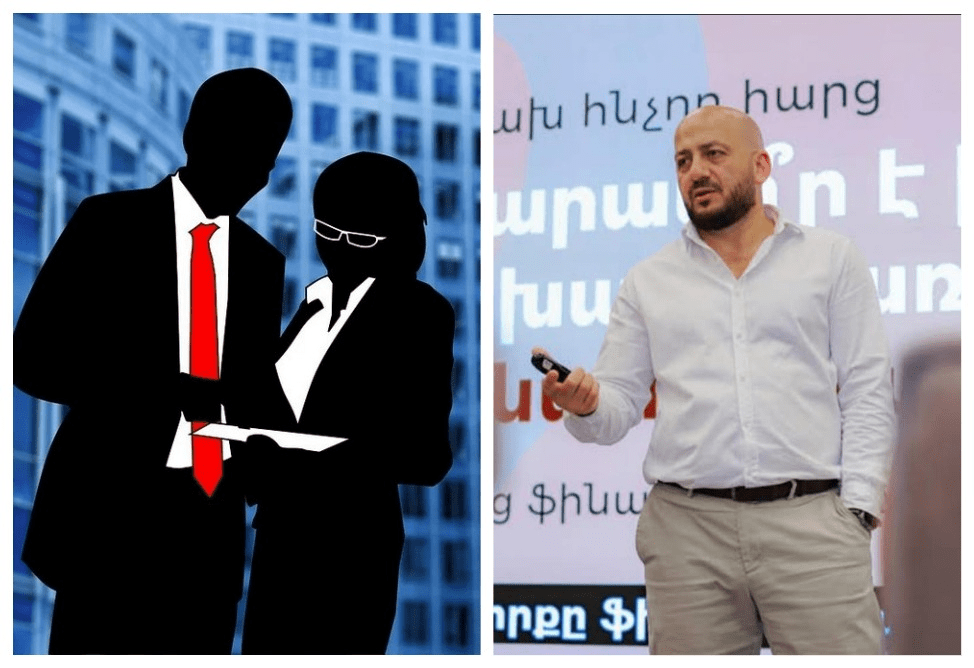Head of Mantashiants Entrepreneurs Union proposes reforms to protect Armenian businesses from arbitrary actions

He referenced various global issues as the rationale behind this initiative. “Each year, around 1,000 businesses in Armenia face criminal prosecution. This figure is significantly high. In comparison, the United States sees between 3,000 and 4,000 criminal cases against businesses annually, despite having roughly 30 million businesses compared to about 70,000 in Armenia,” Mirakyan stated on his Telegram channel.
He emphasized that all entrepreneurs find themselves in a precarious situation: on one side, they contend with the erroneous ‘preliminary tax calculations’ made by unqualified inspectors from the State Revenue Committee (SRC), and on the other, they face the rude, incompetent, and disrespectful actions of the Investigative Committee.
“Statistics indicate that the State Revenue Committee loses most of its cases, and the outcomes of the Investigative Committee’s ‘masked show’ often fall short of expectations,” he remarked.
Mirakyan believes this situation arises not only from inefficiency but also from a crisis of trust: the business community starts to view the state not as a protector but as a potential threat. “In such an environment, investment diminishes, new job opportunities are not generated, and the economy deteriorates from within,” he concluded.
Mirakyan stated that legislative proposals have been formulated in partnership with collaborators and are presently under discussion with various authorized entities. “They assert that, firstly, the threshold for initiating criminal cases should not be set at 10 million drams, but rather determined by turnover, as at 10 million, criminal cases could be initiated against nearly all enterprises with a turnover exceeding 200-300 million,” he clarifies.
The second proposal, as highlighted by the head of the Mantashyants Union, pertains to the return of data storage devices.
“Typically, employees of the Investigative Committee show little concern for the damage inflicted on the country and the economy; they retain enterprises’ computers for extended periods, sometimes months or even years, without returning them.
Consequently, this not only paralyzes businesses but also compels them to incur additional costs to purchase new computers. Our proposal mandates that the Investigative Committee must return the data storage devices within three days,” he articulates.
Mirakyan further explains that the third proposal indicates that if an enterprise’s cash flows sufficiently cover the evident amount of the violation, no investigative actions should be undertaken without prior consultation with the enterprise.
“We must revise our approach to this matter; otherwise, the state risks perceiving or treating all entrepreneurs as criminals. The state ought to regard entrepreneurs as partners rather than adversaries. Only in this manner can we cultivate an economic environment founded on trust, benefiting both business and the state,” the entrepreneur concludes.
He referenced various global issues as the rationale behind this initiative. “Each year, around 1,000 businesses in Armenia face criminal prosecution. This figure is significantly high. In comparison, the United States sees between 3,000 and 4,000 criminal cases against businesses annually, despite having roughly 30 million businesses compared to about 70,000 in Armenia,” Mirakyan stated on his Telegram channel.
He emphasized that all entrepreneurs find themselves in a precarious situation: on one side, they contend with the erroneous ‘preliminary tax calculations’ made by unqualified inspectors from the State Revenue Committee (SRC), and on the other, they face the rude, incompetent, and disrespectful actions of the Investigative Committee.
“Statistics indicate that the State Revenue Committee loses most of its cases, and the outcomes of the Investigative Committee’s ‘masked show’ often fall short of expectations,” he remarked.
Mirakyan believes this situation arises not only from inefficiency but also from a crisis of trust: the business community starts to view the state not as a protector but as a potential threat. “In such an environment, investment diminishes, new job opportunities are not generated, and the economy deteriorates from within,” he concluded.
Mirakyan stated that legislative proposals have been formulated in partnership with collaborators and are presently under discussion with various authorized entities. “They assert that, firstly, the threshold for initiating criminal cases should not be set at 10 million drams, but rather determined by turnover, as at 10 million, criminal cases could be initiated against nearly all enterprises with a turnover exceeding 200-300 million,” he clarifies.
The second proposal, as highlighted by the head of the Mantashyants Union, pertains to the return of data storage devices.
“Typically, employees of the Investigative Committee show little concern for the damage inflicted on the country and the economy; they retain enterprises’ computers for extended periods, sometimes months or even years, without returning them.
Consequently, this not only paralyzes businesses but also compels them to incur additional costs to purchase new computers. Our proposal mandates that the Investigative Committee must return the data storage devices within three days,” he articulates.
Mirakyan further explains that the third proposal indicates that if an enterprise’s cash flows sufficiently cover the evident amount of the violation, no investigative actions should be undertaken without prior consultation with the enterprise.
“We must revise our approach to this matter; otherwise, the state risks perceiving or treating all entrepreneurs as criminals. The state ought to regard entrepreneurs as partners rather than adversaries. Only in this manner can we cultivate an economic environment founded on trust, benefiting both business and the state,” the entrepreneur concludes.





